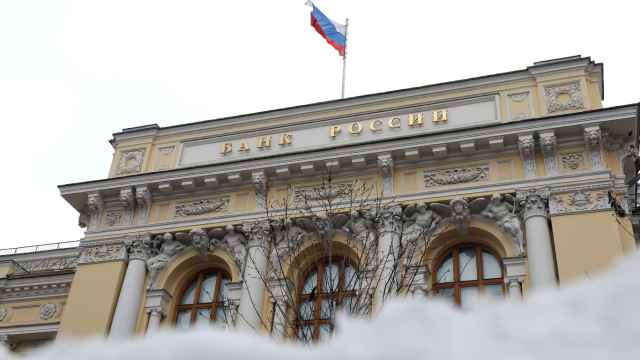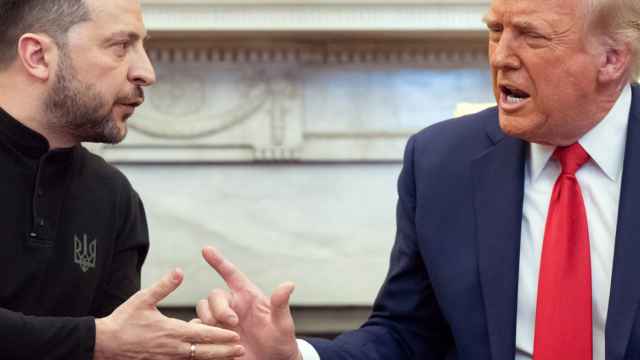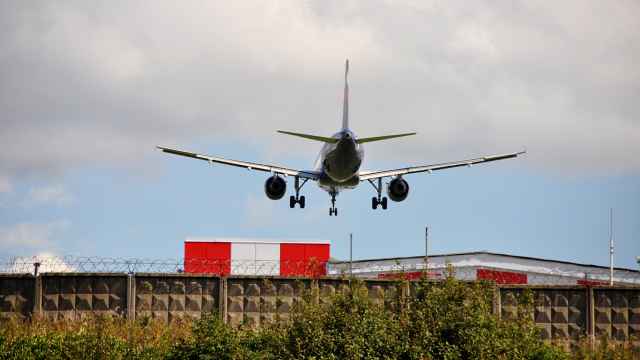Late last year the strategic partnership progress report issued by the European External Action Service recommended that the European Union and Russia hold only one summit per year instead of two. The so-called vegetable summit held Thursday and Friday in Nizhny Novgorod has shown that even one might be too many.
This summit marked the apogee of the trivialization and degeneration of EU-Russian summits that has been building for years. Every significant bilateral issue was eclipsed by the search for E. coli in European farms, supermarkets, restaurants and even garbage cans. Russia’s top sanitary official, Gennady Onishchenko, who on June 5 announced a ban on European vegetables, became the anti-hero of the summit.
The ill-fated cucumber shoved other more important questions onto the back burner, including Russia’s accession to the World Trade Organization, efforts to establish visa-free travel between Russia and the EU, and international disagreements over resolutions concerning Syria and the future of Libya.
Summit leaders went to great lengths to pretend that no problems exist regarding the security of European investments in Russia, that negotiations on transportation and the EU “open sky” proposal have not hit a dead-end, that the European Union has not been ignoring Russia’s suggestion to form a pan-European security pact and that irreconcilable differences have not arisen over the content of a new agreement on EU-Russian partnership and cooperation.
This type of affected politeness is always annoying, especially in the trivial form that we saw in Nizhny Novgorod. But what else can be expected from meetings that produce no official policy and make no attempt to shape public opinion?
One way of measuring Brussels’ interest toward Russia would be to take a cardiogram of a patient whose heart has stopped, one that can only be revived with a defibrillator. Russia’s gas supply is the defibrillator that can save the life of EU-Russian relations. Most EU discussion of Russia is within the context of the energy question: construction of the South Stream project, gas price negotiations with neighboring transit partners or increasing the capacity of the European natural gas storage facilities under the control of Gazprom.
But the odds of achieving success in these areas are low because both sides have conflicting values. By all indications, Russian negotiators believe that prospects for receiving even more Russian gas require manipulating the law and abandoning the principle of competition in the energy market. Not surprisingly, European leaders reject this approach outright, and as a result the fundamental issues affecting EU-Russian relations are not resolved at these summits.
At the same time, it would be wrong to say that Brussels has completely lost interest in Russia. But the interest it does have is hardly a cause for optimism. Having gotten a taste of empowerment after the Treaty of Lisbon was passed, the European Parliament, nongovernmental and human rights organizations have been actively trying to reshape Russia’s image. But in the end they have only ruined it.
For example, the European Parliament adopted a resolution on the eve of this summit promising Russia everything from new trade agreements, visa-free travel and cooperation to membership in the WTO if Russia made commitments to improve human rights, stop harassing opposition leaders, withdraw its troops from Abkhazia and allow gay parades.
But if anyone in Russia took European demands even a little seriously, they might ask what gay parades have to do with the broader political and economic agenda in EU-Russian relations.
Why did the EU spoil the summit before it even started?
The cucumber summit has shown clearly that there is no real or substantive dialogue between the EU and Russia today. Strangely enough, both sides seem to be satisfied with this status quo.
A meaningful and substantial dialogue to solve the numerous problems in EU-Russian relations is needed today more than ever. But for that, political willpower is required. For now, though, we have only meaningless discussion about cucumbers.
Yekaterina Kuznetsova is director of European programs at the Center for Post-Industrial Studies in Moscow.
A Message from The Moscow Times:
Dear readers,
We are facing unprecedented challenges. Russia's Prosecutor General's Office has designated The Moscow Times as an "undesirable" organization, criminalizing our work and putting our staff at risk of prosecution. This follows our earlier unjust labeling as a "foreign agent."
These actions are direct attempts to silence independent journalism in Russia. The authorities claim our work "discredits the decisions of the Russian leadership." We see things differently: we strive to provide accurate, unbiased reporting on Russia.
We, the journalists of The Moscow Times, refuse to be silenced. But to continue our work, we need your help.
Your support, no matter how small, makes a world of difference. If you can, please support us monthly starting from just $2. It's quick to set up, and every contribution makes a significant impact.
By supporting The Moscow Times, you're defending open, independent journalism in the face of repression. Thank you for standing with us.
Remind me later.





